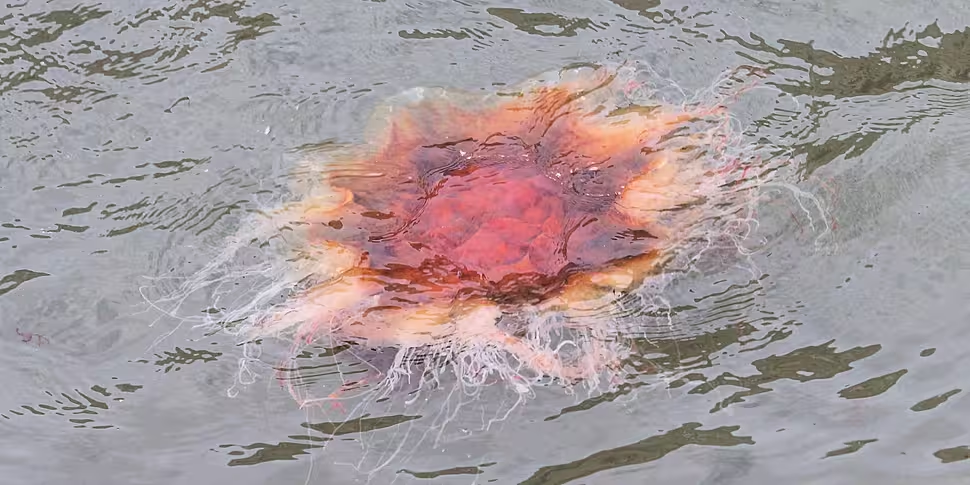There's a warning that there are more and more jellyfish in Irish waters every year.
It comes amid the growing popularity of sea swimming - meaning more people than ever are likely to encounter a jellyfish while in the water.
John Leech – CEO of Water Safety Ireland - told The Pat Kenny Show the issue has definitely gotten worse in recent years.
He said: “For the last 5-7 years, we’ve seen a steady increase in the number of jellyfish appearing on our shores.
"That would include the Portuguese man o' war - which actually requires wind to essentially sail it from tropical waters into our own."
The most common jellyfish in Irish water is a small purple-pink coloured one.
That one does string, although it's not much different to a nettle sting - similar to blue jellyfish.
John explained: "Then you have the compass, which looks like it has a brown and tan [colour].
“We have the barrel jellyfish, which is a big jellyfish - it doesn’t really sting, but some people can get an allergic reaction. People confuse it with the lion’s mane jellyfish.”
The lion's mane is one of the more dangerous jellyfish in Irish waters - and John noted they're actually very common.
He said: “It is native to our waters - people think it comes in in the summer, but it’s there all winter. The reason people would have seen it this weekend is we had spring tide… you tend to see more jellyfish coming into our bathing waters when you have spring tides.
“It can be quite dangerous - some people can get an anaphylactic shock from it. It’s a horrible sting - it’s not nice at all.”
The word from lifeguards right across the country is that more and more jellyfish stings are being treated - but is there anything driving the jellyfish into popular bathing spots?
John explained: “We believe, from what we can understand and what we’ve read, is they’re here because there’s overfishing going on in our waters. When these jellyfish are small, normally other fish would be eating them. But there’s not enough fish to eat them.
“You end up with too many jellyfish, and not enough fish to [prey] on them.”
He also noted that global warming is driving “more and more” jellyfish such as the man o'war from the West Indies, and they're ending up here.
He also explained that the Shannon Estuary recently saw its first lion's mane spotting a few weeks ago - an “extraordinary” development, as the animals usually stick to cooler water.
Jellyfish stings
John warned that many jellyfish stings happen when people swim into tentacles without seeing them - but people can also be stung while simply walking along the beach.
He explained: “When they do get washed up on the shore… the tentacles wash up on the beach, but the problem is they don’t die when the jellyfish dies.
"They can stay there - depending on the humidity - for up to a week, and can keep on stinging.”
Local authorities are, however, usually good at coming out and burying the jellyfish, to ensure people don't get stung.
So what should you do if you or a friend or family member actually gets stung?
John said it's vital not to listen to old myths about the best way to treat a jellyfish sting.
He said: “Always use seawater when you’re rinsing off the affected area. And don’t urinate on the sting - that really is an old wives' tale.
"Don’t use vinegar… don’t use alcohol… and don’t put on a bandage.
"When you’re taking the tentacles off, use a plastic credit card if you have one. Use a towel if necessary, or a gloved hand preferably.
“Remove the tentacle as best as you can, without rubbing them. Rinse with seawater, and if you have a cold pack that works quite well to take away the pain."
Anyone experiencing more than a "minor discomfort" after a sting should go to A&E ASAP - a sting can bring on anaphylactic shock, which can affect the heart.









